Editor’s note: This year, we are releasing a new series of stories themed on “Red Finance: CPC’s Financial History in Shanghai”. Below is an article about Zhang Chengzong, a prominent revolutionary in Shanghai’s financial sector who made great contributions to the city’s liberation.
At Shanghai’s 81 Yuyuan Rd, the inconspicuous three-story house used to be where the Shanghai Municipal CPC Committee was seated, and is widely known as the former residence of Liu Changsheng. But what is lesser known is that a revolutionary named Zhang Chengzong also lived there. A bank clerk at that time, he led the secret work of the Shanghai CPC organization with Liu.
Establishing a united frontline in the financial sector
Zhang Chengzong was born in Ningbo in June 1910. At the age of six, he came to Shanghai to study. After that, his life was inseparable from Shanghai.
In 1925, at the age of 15, Zhang was on the site when British police officers directed patrols to shoot at unarmed Chinese, causing dozens of deaths and injuries during the May 30th Incident. He said, “The (May 30th) incident awakened me from the fantasy of pursuing comfort and superiority.”
In 1930, while working as a bank clerk in Xintai Bank, Zhang began to take part in patriotic movements. Afraid of being suppressed by the Kuomingtang government, Xintai Bank tried to persuade Zhang to stop his involvement in those movements. But the requirement was firmly refused.
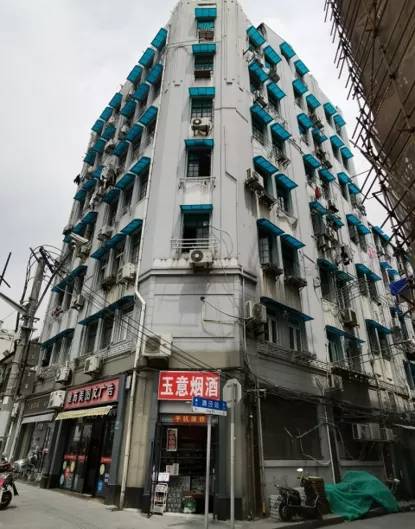
(In 1937, CCP member Zhang Chengzong established a Party branch in Xintai Bank. Pictured above is the former site of the bank at 148 Henan Rd.)
The outbreak of the Mukden Incident in 1931 ignited the patriotic enthusiasm of employees in Shanghai's financial industry. In October 1936, Zhang was elected as a council member of the Shanghai Banking and Money Industry Amateur Association. The establishment of the Association united a large number of employees in the financial sector as Shanghai at that time was the financial center of the Far East.
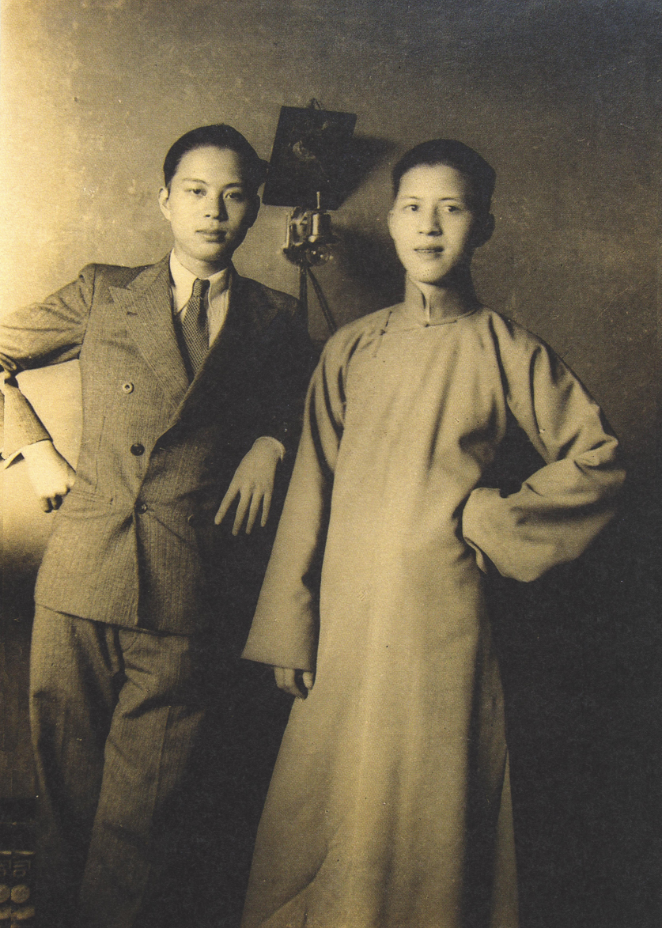
(Zhang Chengzong and his younger brother Zhang Kunzhai)
In August 1937, Zhang joined the Communist Party of China. The following year, a Party Committee was established in Shanghai’s financial sector, and Zhang was the first Party secretary.
Under Zhang’s leadership, the Association expanded to over 15,000 members by June 1948. While uniting the people in the financial sector like a big family, it also encouraged them in their anti-Japanese patriotic actions.
Getting ready for Shanghai’s liberation
After the victory of the Anti-Japanese War in August 1945, Liu Changsheng and Zhang Chengzong were transferred back to Shanghai from the New Fourth Army to lead the work of the Shanghai Municipal CPC Committee. Their home was the three-story house at 81 Yuyuan Road. Liu’s family lived on the second floor while Zhang’s family lived on the third floor.
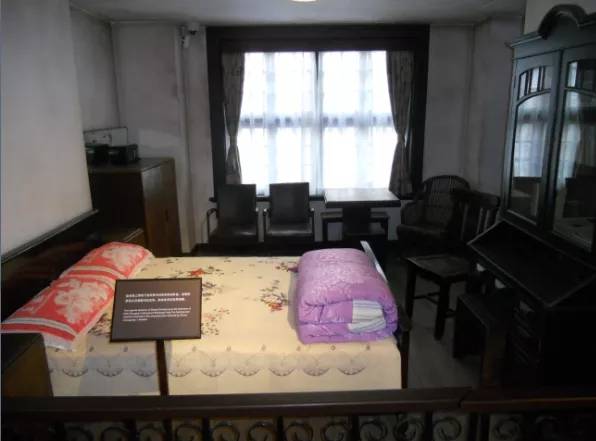
The only telephone in the house was in Zhang’s home. Therefore, Liu often went to Zhang’s house to discuss work under the pretense of using his telephone.
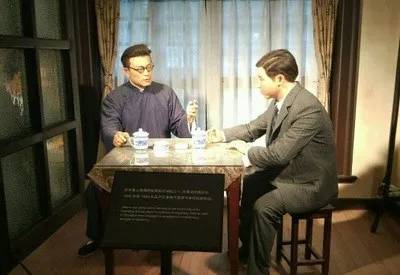
(Wax figures of Liu Changsheng and Liu Xiao. The latter was then Party secretary of the Shanghai Bureau of the CPC Central Committee.)
Before the New Fourth Army entered Shanghai, the two opened a rice shop as a secret liaison station, where Zhang’s younger brother Zhang Kunzhai was disguised as the shop owner.
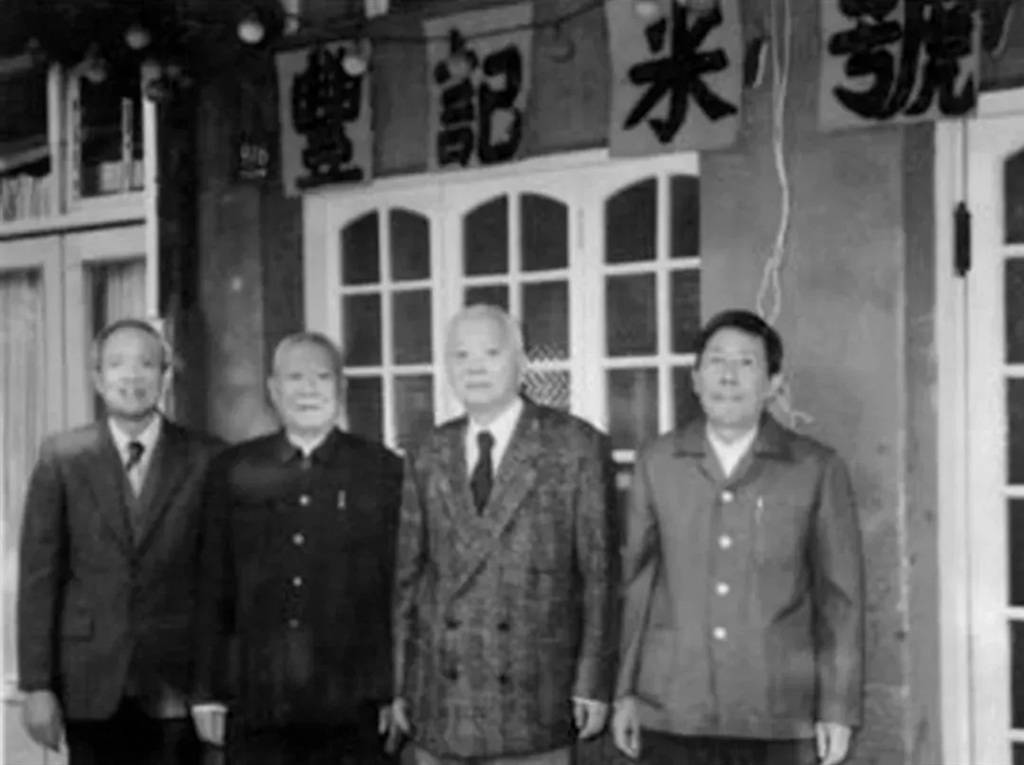
(Zhang Chengzong, second from right, revisited the rice shop in 1993)
To their great surprise, a special spy agency of the KMT moved to a house opposite the rice shop. Zhang and his comrades had to work more carefully in the more complicated and dangerous situation. Later, Zhang Chengzong’s eldest son Zhang Yasheng also went to the shop to help with the intelligence work.
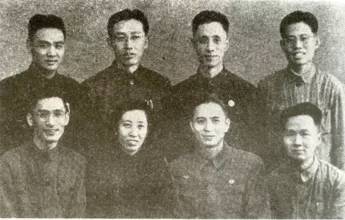
(A group photo of the Shanghai Municipal CPC Committee before Shanghai’s liberation from the KMT)
To prepare for the liberation of Shanghai, Zhang led a large number of investigations into Shanghai’s economic and market conditions. The Party members also compiled a set of volumes about major financial institutions and the financial market across the city, to help with the successful takeover of Shanghai.
In fact, Shanghai’s economy was on the brink of collapse at the end of the Nationalist government’s rule. It was thanks to Zhang and his comrades’ economic investigations that the economy was immediately brought back to stability.
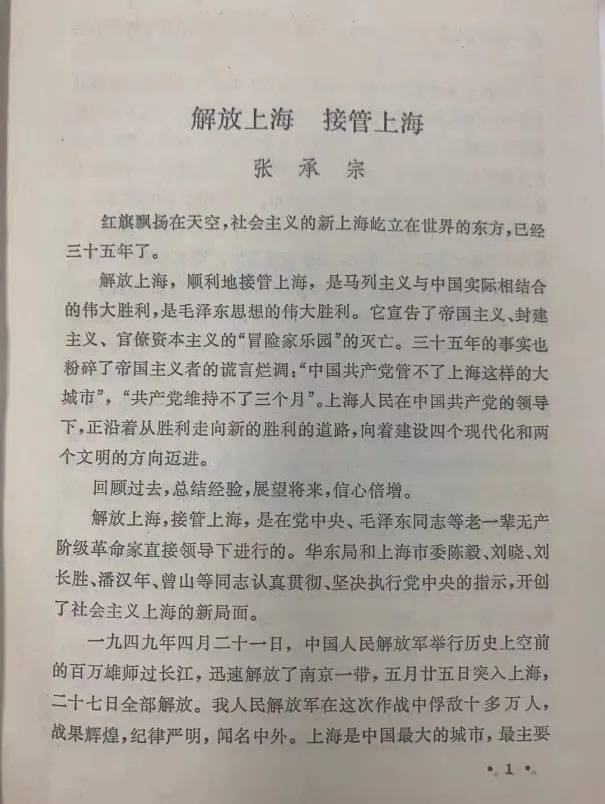
(Zhang Chengzong’s article about the liberation and takeover of Shanghai)
Later in an article, Zhang said, “The liberation of Shanghai and the smooth takeover of the city was a great victory for the combination of Marxism-Leninism and Chinese reality, and a great victory for Mao Zedong Thought. It also crushed the imperialists’ assumption that the CPC could not successfully take over such a big city as Shanghai.”
Establishing Aj Group after a visit to Hong Kong
After the People’s Republic of China was founded, Zhang kept making contributions to the construction of Shanghai.
In 1979, he led a delegation group to Hong Kong, kicking off an all-around cooperation and exchanges between HK and Shanghai.
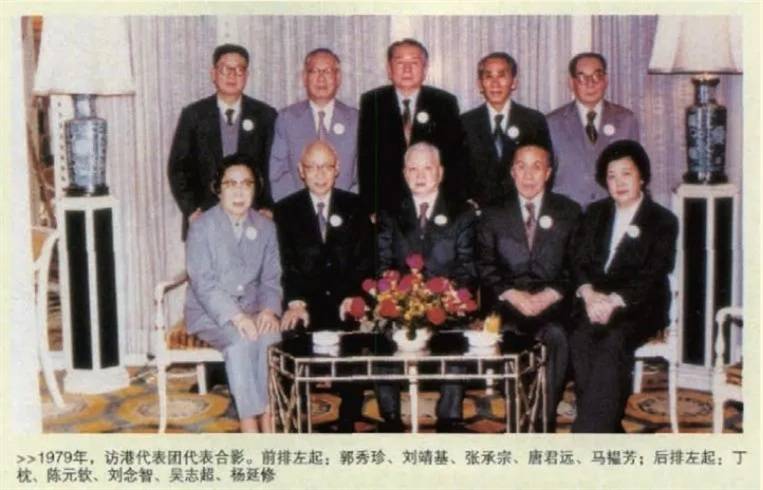
(A group photo of the delegation. Third from left is Zhang Chengzong)
In 1979, Shanghai Aj Group was established with the joint efforts of HK, Macao and Shanghai’s industrial and business fields. It was the first privately-owned enterprise after the reform and opening up policy began.
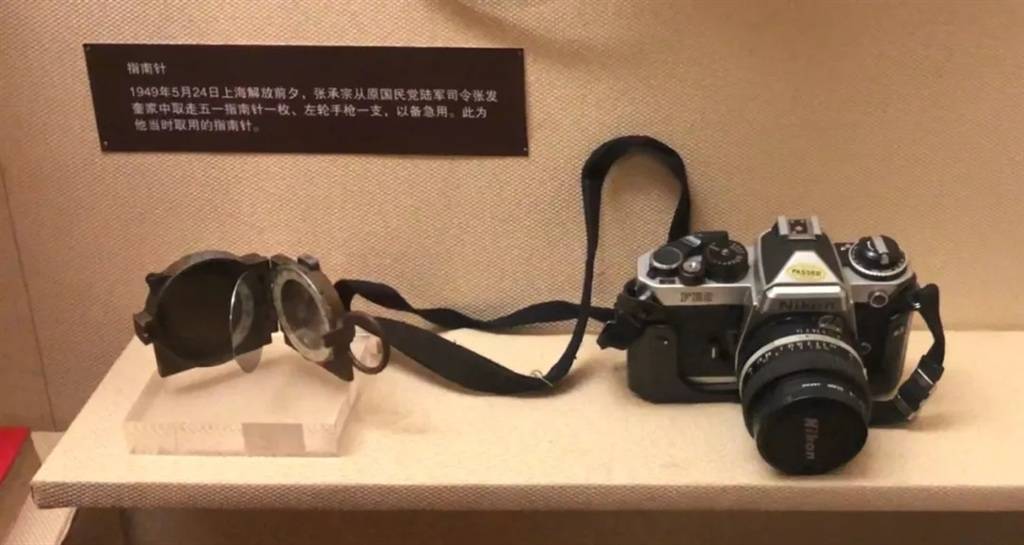
In 1996, Zhang Chengzong passed away in Shanghai at the age of 88. His eldest son Zhang Yasheng once recalled: “After my father passed away, Zhao Qizheng came to my house to express his condolences, adding that my father was a walking encyclopedia to witness Shanghai’s revolutionary history as he participated in almost every major event. He was a witness and commander.”
Story by Zhao Ming, Kong Wenlong
Translation: Wu Qiong
Some photos provided by the Exhibition Hall of the History of CPC’s Underground Organization in Shanghai & Former Residence of Liu Changsheng
